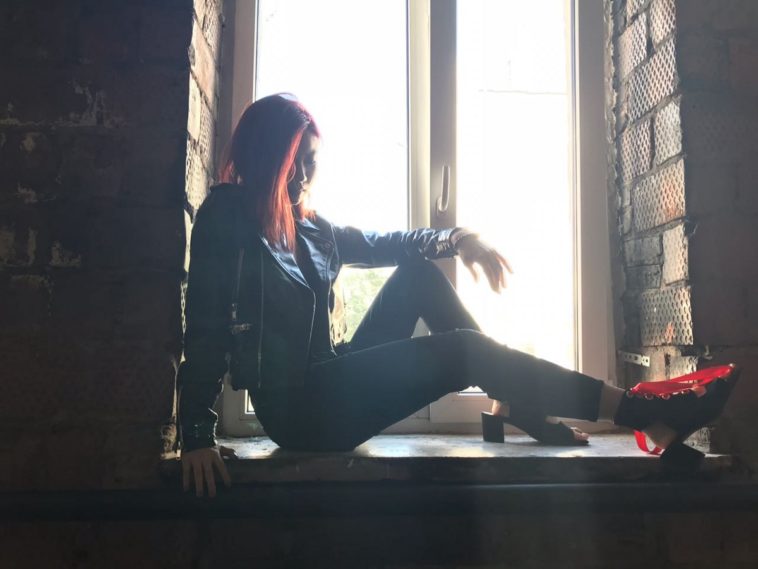h2>Dating : things we hear in the silence
As the palms of my hands touched his shoulders, the boy’s head turned around, a startled expression visible on his face as his body slumps over and rolls down the staircase. It was not very high up, just a flight. Yet, below, I see his body, one I had thought to be big and intimidating, now seeming so little when crouching in pain.
…
I have never seen myself as different. Yet, in the land of snow and ice where I was born and grew up, everyone seemed to see this. People with the skin the color of snow, delicate like porcelain, always turning around to look at me, curiosity sparking in the gorgeous blues of their eyes.
I remember how, once, in pre-school, I confided in my classmate about a boy, Daniel, whom I have been friends with, saying that I find him very kind, then asking her not to tell anyone. The next day, when I arrived in kindergarten, the whole class knew about my secret. With my heart thumping, I slowly approached the crowd assembled around Daniel. As the group saw me, they looked at the boy, anticipating his response. Catching their gaze, he said the words that would shatter something within me: “Liking her? Of course not! She’s a chink!” His tiny five-year-old’s fingers pulled on the outer corner of his eyelids, grimacing. I remember walking away, my eyes wet, the lump in my throat feeling bitter.
I remember in ballet school when our teacher would break us into pairs for practice, one of the boys would always oppose the arrangement.
“She is a chink!” I hear his shouts turning into laughter, his expression disagreeable, “I don’t want to dance with a Chinese!” I would quietly ask our teacher in advance not to be placed in a pair with the boy, fearing he would make fun of me during the practice.
In elementary school, I was still a very timid girl. I would often stay behind after class: I was afraid of coming home, fearful of what was happening there. I found excuses to hang around after lessons for as long as possible. The time spent in the school library until closing hours bore fruit: I was ahead in all of my courses. Also, volunteering to help teachers miscellaneously got them to take a liking to me, resulting in them giving me in-depth guidance in their subject through extracurricular projects. Thus, in second grade, I rose to the top of my year and remained there throughout elementary school.
There was something about the combination of being timid, doing well in school, and being one of a few minority persons in school — that made me the perfect target for bullying for my upperclassmen. My parents had taught me to be idle and not get into conflicts — we were guests in a foreign country, they would reason, and have to play by the local rules. I followed their teaching closely. I avoided eye-contact with people picking fights with me. I pretended not to hear the hurtful words addressed to me when they pass by. I held back my tears as my voice crackled, forming stuttering distortions instead of the piece I spent days composing, at a school poetry contest, trying to make myself deaf to the racial slurs mixed in with boos and cackles from the back rows.
Then, suddenly, as with most things, this shell of my life began to crack. It started in grade seven. I had a close friend who was also Vietnamese — there were only two of us in the whole school, and we would often stick together. That day we were both on cleaning duty. While cleaning the flights downstairs, we heard giggles above, and a few moments later caught a glimpse of a bucket with water splashing down, soaking us both. It was the gray water used for the floors.
I don’t know exactly why, perhaps due to the sight of my friend trembling in tears, but at that moment, the instructions my parents had ingrained within me on enduring went bust. Left behind was a rising rage overcoming my whole being. I dropped the cleaning supplies and sprinted upstairs, looking for the culprits. I was stopped midway by one of the schoolmasters who gave me a scolding. I vented to her about the continuous bullying, about how fed up I was with this injustice. In response, she smirked and said that it’s merely “kids being kids, just a way of playing.” She added that I should go clean up now and cease the running through hallways to avoid getting disciplinary assessments.
Something had changed within me after that incident. Realization dawn upon me, an understanding that adults are impotent and cowardly, and that if I don’t take matters into my own hands, things will never get better. I knew the group that was bullying me: it consisted of a few upperclassmen, girls, and boys, about six of them. The two girls were harmless and would only tag along, giggling at the boys’ remarks. The boys were different: rowdy delinquents with foul mouths, never shying away from physical altercations.
I knew two of them pushed that water bucket down the stairs. My eyes caught a glimpse of their faces before I got soaked. A plan was forming in my head. I planned to locate them by themselves, one by one, and teach them a lesson.
Boy A was located alone on the staircase after classes, as he was sprinting down, hurrying somewhere. I appeared from behind and swiftly gave him a nudge. From above, examining his body curled up in pain, his mouth forming growling noises No broken bones or concussions — great; bruises and aches — naturally. Having completed my assessment, I walked away, finding it unnecessary to utter words. An understanding was reached in those inaudible moments through our eyes that had locked.
I knew it was boy B’s cleaning duty today. I concealed myself behind the supplies room: a dark, damp walk-in closet, to be more precise and waited. Finally, the subject arrived. As soon as he stepped into the dark space, looking for brooms and brushes, I kicked him in the back. He fell forward and quickly turned around, an expression of shock taking over his face.
“You!” I hear his teeth grinding in madness as he quickly tries to help himself up. To prevent him from regaining balance, I instantly follow up with another two kicks to his legs, my punch reaching his face. The hits reached, but I lost my balance and ended up on the floor. Sensing an opportunity, the boy grabbed me by my long hair and threw a kick somewhere around my abdomen. Rage took over me, more precisely, both of us. I didn’t feel pain at this point, only the pent up anger I felt all these years for the injustice I could never comprehend. Panting and shouting, we came on to each other, him grabbing me by my long hair and my hand firm on his throat, our other limbs punching and kicking. We must have made quite a lot of noise, because in another instance a crowd gathered, split by the figure of our school headmaster and her assistant, shouting something.
The next moments went by in a haze. I remember the wood-laced office, the many plates, portraits, and awards decorating the walls. I remember the scolding, the anger on the faces of people who told us we were unbelievable in our behavior, that disciplinary action was to be taken against both of us.
“Why me?” I murmured, still in a haze.
“Excuse me?” the authoritative voice answered with obvious irritation.
“Why me. THEY have been the ones bullying me all these years, under your eyes. THEY have been the ones calling me racial slurs. THEY have been ones playing cruel pranks one me, dropping buckets with wastewater on me. Why am I also punished when all I did was stood up for myself, protect myself?” I don’t know where I found the audacity to articulate all these statements so explicitly — there was no trace left of the timid me.
Silence followed.
The headmaster’s eyes were wide opened. She seemed lost for words. It seemed I had stepped on a minefield, and that justice in the context of diversity is never truly sanctioned. It was a taboo not to be spoken of or defined but with a clear unspoken code of conduct that was unquestionable. And that way of conduct was: that the outlanders were to follow the host’s rules, never to be treated the same as the hosts, never to be judged by the same guidelines as the hosts, that they have fewer rights and will be subject to more interrogation.
At that moment, I realized something significant. That what makes someone the “host” or the “outlander” was not their differences only in skin color, or cultural background, or place of origin. However, those were, like in my case, distinctions made to stand out to distract from more considerable gaps. Depending on the circumstances, there will be times when you will be more of “the host,” and in others more of “the outlander.” I understood that the seeds for prejudice and discrimination have been sown to divide from times ancient, binding each side to suffer from the division.
Outside of the headmaster’s office, the boys and I looked at each other. Their eyes, previously cruel and aggressive, now have a softened feeling to them. As if a new understanding had come onto them after our altercation. As if as we roll on the floor, sweating and growling, suffering the same pains caused to our flesh by another, we have surmounted the differences that cause us to fight in the first place. As if we have realized there are more things in common in us than different. That we hurt all the same and fight for living all the same.
The rest of the school year went by peacefully. I was never made fun of again for being Asian. So it came as a surprise when it was announced towards the year-end that I would be leaving. I had successfully passed an entrance exam and will be attending a school under the affiliation of a national aviation university, one specializing in engineering subjects. From the outside, my decision was seen as a way to choose a better academic environment. Inside, I knew that a realization I had that day was the reason propelling to make the change.
You see, when I understood that we were more the same than different, I could no longer hate the hooligans that had caused me so much trouble during my years in elementary. It seemed I have started noticing more since the incident. Most of them, just like me, never went home right away after classes ended, passing their time on playground benches, blasting music loudly as if to drown out deafening emotions. Many of them had unwashed hair, worn-out shoes, and dressed the same clothes days in a row. For most of them, I have never seen the parents attending school events. This was quite normal then — in Russia after the collapse of the Soviet Union. The melancholy, the poverty, the single-parent, the pent-up anger, it all was the norm. Despair was the real enemy of us all. My unpreparedness in the face of this foe I can’t just push down the stairs, the atmosphere we were all living, became the reason for me to get out there and learn, hoping to grow enough to defeat it one day.
…
That day after the fight, exiting the headmaster’s office, we listened to the heavy silence as we part ways in the opposite directions of the school corridor.
The silence uttered: I am sorry. The silence uttered back: I understand.




